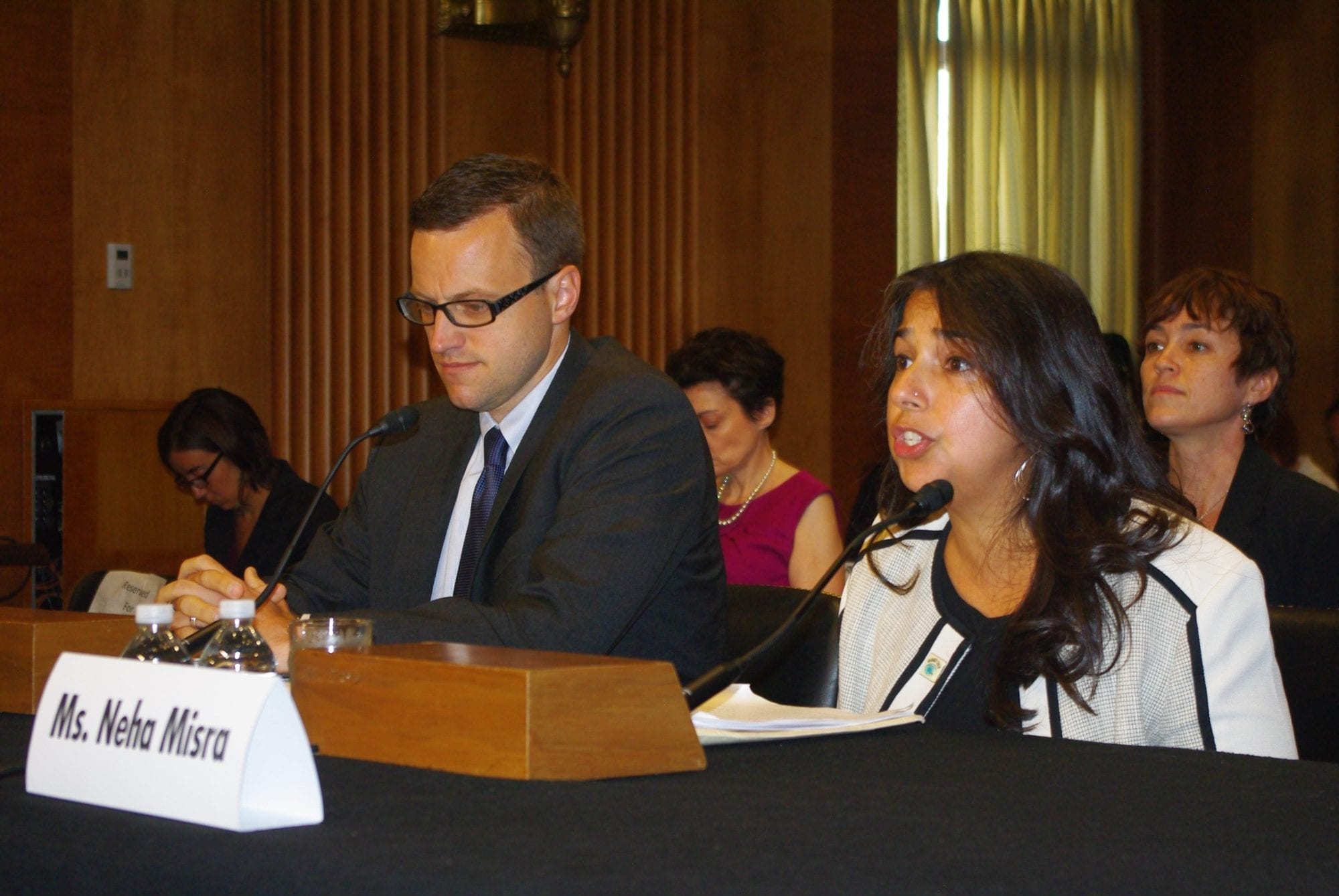July 30: First-Ever World Day against Human Trafficking
The United Nations today marks the first-ever World Day against Trafficking in Persons, created to raise awareness and highlight the plight of the millions of women, men and children who are trafficked and exploited, as well as to encourage people to take action to end the scourge.
Forced labor is the most common motive behind human trafficking, with more than 21 million people trapped in often slave-like conditions. Forced labor generates $51 billion per year in illegal profits, according to the International Labor Organization (ILO).
In the Dominican Republic, where tens of thousands of Haitians have been trafficked over decades to toil as domestic workers and sugarcane harvesters, the constitutional court ruled last September that children born to undocumented parents between 1929 and 2010 were not entitled to Dominican citizenship, effectively leaving up to 200,000 children and grandchildren of migrant workers without citizenship in the only country many of them have ever known.
Following international outrage, the country recently enacted a “regularization” plan that recognizes some 60,000 migrants with documents. But in practice, says Ana Maria Belique, “officials still reject our documents.” Belique, program director for the Bono Center, a Jesuit social and educational organization, took part in a recent migration advocacy training with labor and migrant activists organized by the Solidarity Center.
In the 1950s and 1960s, the Dominican Republic signed a series of agreements with Haiti that covered seasonal Haitian labor in the government-owned sugar industry.
But because the Dominican Republic did not fulfill its commitment to repatriate migrant workers, the migrant laborer agreements essentially became legal instruments for trafficking Haitian labor. Migrant workers were settled on sugar refining lands and had no access to health care or education. These impoverished settlements, known as bateys, became home to the families of migrants who did not or could not return to Haiti. The lack of legal status and statelessness are internationally identified indicators that increase workers vulnerability to forced labor and other forms of trafficking.
Rather than granting citizenship to the descendants of those trafficked for back-breaking work in sugarcane fields, the regularization plan requires that they provide proof of birth through testimony from a hospital, family member or priest before beginning the long process of “naturalization” with no guarantee of achieving residency. International law calls for children of migrants to automatically receive citizenship from the country where they were born.
The precarious situation of migrant workers under the laborer agreements allowed employers to put Haitian workers in conditions of forced labor through nonpayment of wages, restrictions on their freedom of movement, lack of health and safety regulations, lack of access to social services for migrants and their families and abusive working conditions. And as long as they are undocumented, migrants and their families are a source of low-wage labor.
“The international community should not be fooled by the Dominican government’s ill-named National Plan for Regularization and Naturalization,” says Eulogia Familia, vice president of the Confederaciün Nacional de Unidad Sindical (National Confederation of Labor Union Unity, CNUS). “It is a plan … to maintain them as a cheap labor force which is disenfranchised in the country they were born.”
CNUS and migrant worker rights organizations are working with the Solidarity Center to urge that the government recognize descendants of migrant workers as Dominican citizens in line with international standards for the rights of children. The Solidarity Center and its allies also are seeking to strengthen civil society protection for migrant workers through labor code reform and in coming months, will launch advocacy and visibility actions to raise awareness of the contributions to the Dominican Republic by Dominicans of Haitian descent and by all migrant workers.
The Dominican Republic is one of several countries where the Solidarity Center works to assist workers who have been trafficked, and is among dozens of countries where human trafficking takes place. You can show your support for victims of human trafficking by taking part in a UN-sponsored “thunderclap,” in which messages on a single topic are sent out through social media in a short timespan. By joining the thunderclap via Twitter, Facebook or Tumblr today, you can send a message expressing solidarity with human trafficking victims.

